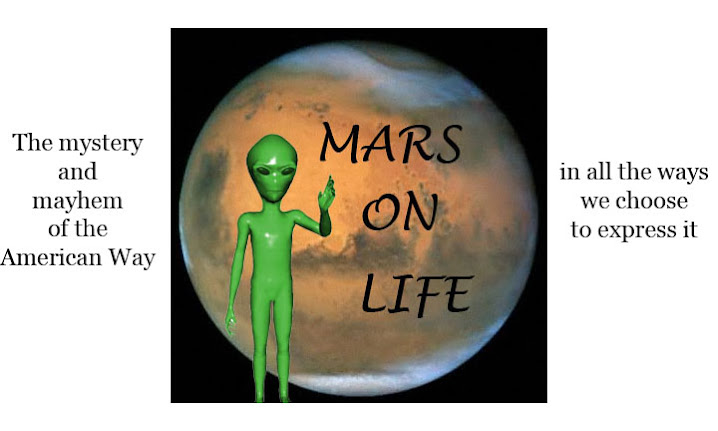Actresses love biographical movies (or--in Hollywood portmanteau--biopics) for the script's possibility of mining the bravura performance that has, in this decade, led to six Best Actress Oscars. Marion Cottilard's Edith Piaf, Helen Mirren's Queen Elizabeth II, and Reese Witherspoon's June Carter Cash were hat trick winners in 2005, 2006, and 2007. In 2000, Julia Roberts tearily accepted for her role as Erin Brokovich. A prosthetic nose helped Nicole Kidman win in 2002 and the following year serial killer Aileen Wuornos provided the violent narrative that sent Charlize Theron to the podium for her own acceptance speech.
A meaty biopic may have tragedy and triumph as a central theme, often accompanied by heroism, alcoholism, hedonism, and madness, frequently in a historical context. Self-loathing is rarer; a pernicious form of negation that is unlikely to lead to much more than doom is little more than hopeless.
Such was the case with Judy Garland, subject of a proposed biopic based on the book Get Happy: The Life of Judy Garland. Garland's downward trajectory started early, on the back lots of MGM, and continued until her death in 1969 at the age of 47. The parasitic studio system consumed Garland, or so it is said, eventually turning a great talent into an addicted wretch who slobbered biliously into a tape recorder while attempting to aurally chronicle her life for an autobiography.
Garland's life is not so ripe for film treatment as it might seem, which might explain why it has not yet been given the big-budget treatment when the lives of fellow performers Loretta Lynn, Fanny Brice, Patsy Cline, Edith Piaf, and Billie Holliday have been. Emotively, Garland is closest to Piaf, but Piaf was French and not part of the great American cultural collective. Piaf was also more emotionally affordable to American audiences since America was largely unfamiliar with her particular tale of woe. Garland's story, on the other hand, is part of Hollywood history and therefore something with which the American public is at least somewhat indoctrinated. The problem with Garland is, first and foremost, how to cast Garland, and secondarily how to deal with the ugly truth that Garland spent at least two decades annihilated by anger and addiction, punctuated by either jubilant or wobbly stage and television performances and increasingly nihilistic behavior. Judy propaganda would have the singer still suffering at the hands of abusive husbands and nursing the lingering psychic wounds caused by Louis B. Mayer, and yet these ideas seem calcified given the present-day medical knowledge of destructive behaviors.
So endeared is Garland to the American public that a baldly honest biopic seems impossible; such an effort would likely be seen as a desecration. Garland was a maudite, someone who publicly atrophied and then died, shriveled beyond her years. The triumph, if there is one, is in the ongoing romantic/melancholic effect Garland's body of work has on her fans. In the days before the light-speed depredations of Internet culture, Garland's life was as public as it could get, with very little if anything to romanticize. The lady, to paraphrase Wizard of Oz co-star Ray Bolger, wore herself out.
The actress Anne Hathaway is said to be in talks to portray Garland in the proposed film. Reports claim that Hathaway, a pleasantly genteel soprano, would do her own singing. Here is where the film would run into trouble; tonal mimicry is bound to suffer by comparison. It is not impossible to imagine Hathaway romping through "Zing! Went the Strings of My Heart" or "The Trolley Song," yet the murkier intimacies of Garland's late-stage concert performances are tricky. Here is where Garland bled in tonal imperatives, both denying and craving affection. The Garland sound is the sine qua non of the Garland legend and cannot be adequately replicated--if it could, the question would be, Why bother?
Hathaway remotely resembles Garland, sharing a slight facial similarity and coloring. Casting for moderate facial resemblance is rule number one of a biopic; consider Drew Barrymore's current outing as Edith Bouvier Beale. Garland was a mere speck of a figure, which was at the core of her original singing success; Hathaway borders on lush. Still, physical variances are somewhat easy to overcome where emotional variances are not; in order to play Garland an actress must comprehend the gnawing of vestigial hurt.
Given the problem with caricature, one imagines the Garland biopic a bourgeois treatise on vulnerability, with heightened poetry and interlocking defiance, minus the horrific self-hatred Garland turned on herself in her ugliest moments, and with a big, shiny showpiece of "Get Happy" leaving us feeling buoyant, if desensitized.










1 comment:
Indeed they will need to delve into the deep and sorted part of her life. To glamourize it would be such bad form. I do hope they make the movie, I loved her, it is so sad the path she went down.
Post a Comment